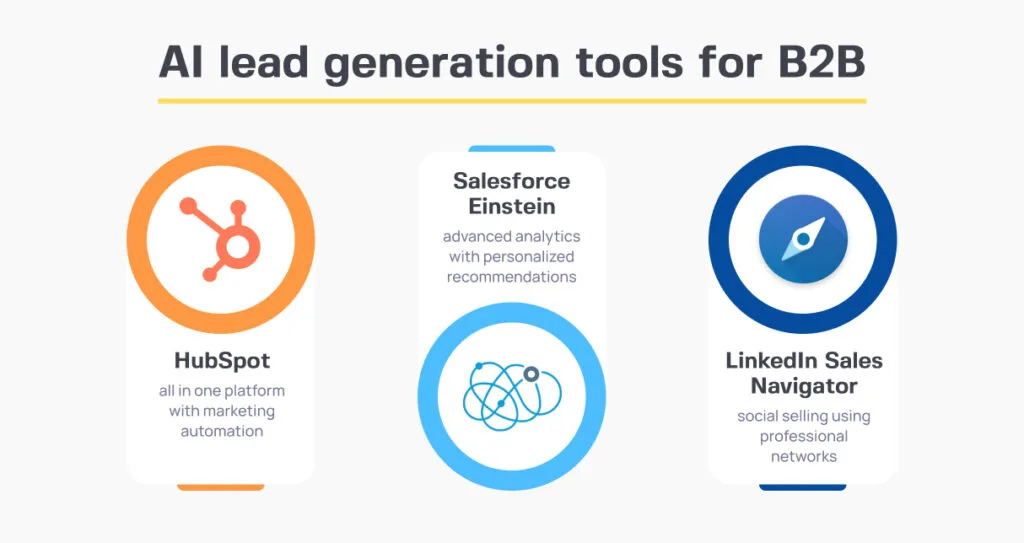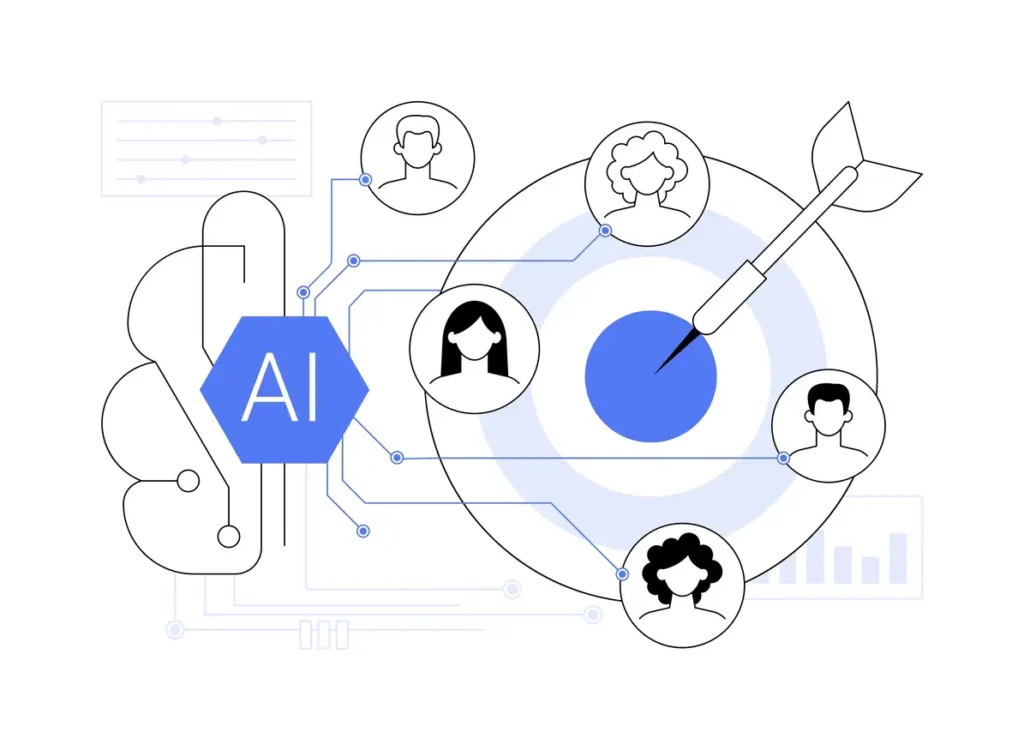Reinvent Your Service: How AI Automation Is Changing B2B Operations
AI automation is reshaping B2B procedures in substantial methods. Firms are adopting this technology to streamline workflows and boost efficiency. As jobs come to be automated, businesses can concentrate on critical growth instead of mundane procedures. The implications of these changes are profound, affecting every little thing from consumer interactions to provide chain monitoring. Comprehending this makeover is crucial, as the future of company joints on the efficient combination of AI right into day-to-day procedures. What exists ahead in this advancing landscape?
Recognizing AI Automation in B2B Context
As organizations significantly look for performance, recognizing AI automation within the B2B context comes to be vital. AI automation describes the application of artificial intelligence modern technologies to streamline and boost company processes. In B2B environments, this can materialize in various types, such as automating information entry, enhancing supply chain logistics, or improving inventory administration. Organizations leveraging AI automation can reduce operational costs, reduce human error, and rise productivity. In addition, AI tools can assess substantial amounts of information to offer actionable understandings, allowing educated decision-making. Growth Systems For B2B. The integration of AI into B2B operations not just changes traditional workflows but additionally cultivates dexterity and scalability, enabling services to adjust to market changes quickly and efficiently. Embracing this modern technology is important for remaining competitive in today's electronic landscape
Enhancing Customer Experience With AI
Just how can AI change consumer communications in the B2B field? AI boosts customer experience by providing personalized, timely, and efficient service. Virtual assistants and intelligent chatbots can manage questions 24/7, ensuring clients get instant feedbacks. Growth Systems For B2B. Anticipating analytics enable businesses to prepare for consumer demands, tailoring offerings as necessary. AI-driven systems can analyze customer data, permitting targeted advertising and marketing approaches and improved interaction. Additionally, belief analysis tools analyze consumer feedback, aiding companies tweak their services. By automating routine tasks, AI liberates human resources to concentrate on high-value communications, promoting more powerful relationships. The assimilation of AI not only improves communication but likewise builds count on and commitment, eventually raising the overall client experience in the affordable B2B landscape

Streamlining Supply Chain Management With AI
AI plays an important role in enhancing supply chain administration via predictive analytics and automated inventory control. By leveraging anticipating analytics, companies can expect demand changes and readjust their procedures as necessary. Automated stock systems better boost effectiveness by making sure stock levels are kept, reducing waste and enhancing total productivity.
Anticipating Analytics Benefits
While lots of businesses encounter difficulties in taking care of complex supply chains, predictive analytics uses a transformative solution by leveraging large quantities of information to anticipate trends and maximize operations. By assessing historic data together with real-time inputs, predictive analytics enables firms to recognize patterns and expect future demands. This insight allows for more educated decision-making, boosting effectiveness and reducing expenses. Additionally, organizations can proactively deal with prospective disturbances by predicting supply chain bottlenecks and changing approaches accordingly. The assimilation of anticipating analytics not only boosts supply management yet likewise promotes stronger connections with providers and consumers through timely actions to market changes. Inevitably, the adoption of anticipating analytics empowers organizations to remain competitive in a progressively dynamic service setting.
Automated Stock Control
As services increasingly depend on anticipating analytics to enhance supply chain operations, automated stock control arises as a powerful ally in this effort. By leveraging AI-driven modern technologies, business can boost precision in inventory monitoring, lower stockouts, and decrease excess supply. Automated systems assess real-time information, allowing organizations to predict demand changes and change stock levels appropriately. This not just enhances order fulfillment yet additionally enhances capital administration by decreasing holding expenses. In addition, AI can identify patterns in buying habits, making it possible for more informed decision-making regarding provider connections and purchase techniques. Inevitably, automated stock control not only enhances operational performance yet additionally boosts client contentment by making certain product accessibility, solidifying its role as an essential element in modern supply chain monitoring.
Data-Driven Choice Making Powered by AI
In today's affordable landscape, organizations significantly rely upon data-driven decision-making to enhance functional efficiency and tactical preparation. Artificial knowledge plays a critical duty in this improvement by evaluating large quantities of data swiftly and accurately. AI formulas identify patterns, fads, and anomalies that human experts might ignore, enabling businesses to make informed decisions based upon real-time insights. This capacity enables firms to predict market changes, enhance source appropriation, and tailor their offerings to consumer requirements. Additionally, AI-driven analytics assist in danger analysis and management, guaranteeing that companies can navigate uncertainties effectively. By leveraging these sophisticated devices, services not just improve their decision-making processes however additionally acquire an affordable advantage in their particular markets, cultivating development and development.
Automating Repeated Jobs to Increase Productivity

Integrating AI With Existing Company Processes
When incorporating AI with existing company procedures, several companies face difficulties. These obstacles frequently come from an absence of recognizing concerning exactly how AI can match present workflows. Effective assimilation calls for a detailed assessment of existing procedures to determine areas where AI can add worth. Organizations has to additionally assure that their teams are furnished with the needed abilities to take advantage of AI devices properly. Additionally, smooth assimilation depends upon the compatibility of AI modern technologies with heritage systems. Companies often find it advantageous to adopt a phased technique, piloting AI applications in particular divisions prior to a broader rollout. This approach enables changes based upon preliminary comments, ensuring smoother shifts and making best use of the prospective advantages of AI automation in enhancing efficiency and performance.
Future Patterns in AI Automation for B2B Business
As B2B companies look to the future, boosted information analytics is set to play a pivotal role in driving decision-making procedures. Intelligent procedure automation will also arise as an essential trend, enhancing and streamlining procedures effectiveness. These developments assure to reshape how businesses operate, inevitably resulting in even more nimble and receptive organizations.
Improved Information Analytics
While services increasingly rely on data-driven choices, the role of AI in improving information analytics is ending up being extra crucial in B2B operations. AI modern technologies facilitate the collection and analysis of large datasets, enabling companies to discover beneficial insights that drive tactical preparation. Anticipating analytics powered by AI allows companies to forecast market trends and client actions with greater precision. Additionally, artificial intelligence algorithms improve data interpretation, determining patterns that human experts may forget. This leads to more enlightened decision-making and enhanced source appropriation - Minarik AI. As B2B firms remain to welcome AI-driven analytics, they can anticipate improved functional effectiveness, enhanced consumer experiences, and an one-upmanship in the market. The future of data analytics in B2B pivots on integrating advanced AI abilities
Smart Process Automation
Smart Refine Automation (IPA) is poised to transform B2B procedures by perfectly incorporating AI innovations with traditional service procedures. This innovative approach incorporates robotic procedure automation (RPA) with innovative AI capabilities, allowing companies to enhance effectiveness and accuracy. Business can automate recurring jobs, such as data entrance and invoice handling, enabling workers to focus on calculated campaigns. IPA also leverages artificial intelligence and natural language handling, boosting decision-making via real-time data evaluation. As businesses progressively adopt IPA, they can expect substantial price reductions and improved client experiences. Future fads show an expanding dependence on IPA for scalability and flexibility, placing organizations to flourish in an ever-evolving industry. Embracing IPA will be necessary for preserving competitiveness in the digital age.
Often Asked Inquiries
What Industries Advantage Most From AI Automation in B2B Operations?
Manufacturing, logistics, finance, and medical care industries benefit most from AI automation in B2B procedures. These industries utilize automation to boost performance, lower prices, streamline procedures, and boost decision-making via anticipating analytics and data-driven insights.
How Can Local Business Carry Out AI Automation Successfully?
Little companies can apply AI automation properly by determining recurring jobs, picking proper tools, integrating solutions progressively, training staff, and continuously assessing efficiency to optimize processes, taking full advantage of and making sure a smooth transition performance. AI Automation For B2B.
What Are the Costs Connected With AI Automation Execution?
The expenses linked with AI automation application normally consist of software purchase, infrastructure upgrades, training team, continuous maintenance, and possible consultation costs. These costs can differ considerably based upon the range and complexity of the automation options chosen.
How Do I Determine ROI From AI Automation Initiatives?
To measure ROI from AI automation efforts, one should examine price click over here savings, efficiency renovations, and income growth versus execution costs. Tracking essential efficiency indications over time gives useful insights into efficiency and general return on financial investment.
What Skills Are Required to Manage AI Automation Projects?
Effective management of AI automation tasks calls for abilities in task management, data analysis, programming, and recognizing AI modern technologies. In addition, solid communication, problem-solving abilities, and adaptability are necessary for steering the intricacies of such campaigns.
As businesses increasingly seek efficiency, comprehending AI automation within the B2B context comes to be essential. The assimilation of AI right into B2B procedures not only transforms traditional workflows yet additionally promotes agility and scalability, allowing businesses to adapt to market changes promptly and efficiently. While companies progressively rely on data-driven decisions, the function of AI in enhancing information analytics is coming to be extra crucial in B2B procedures. Intelligent Refine Automation (IPA) is positioned to transform B2B procedures by seamlessly integrating AI technologies with typical service procedures. Efficient management of AI automation tasks needs abilities in job management, information evaluation, programming, and recognizing AI modern technologies.